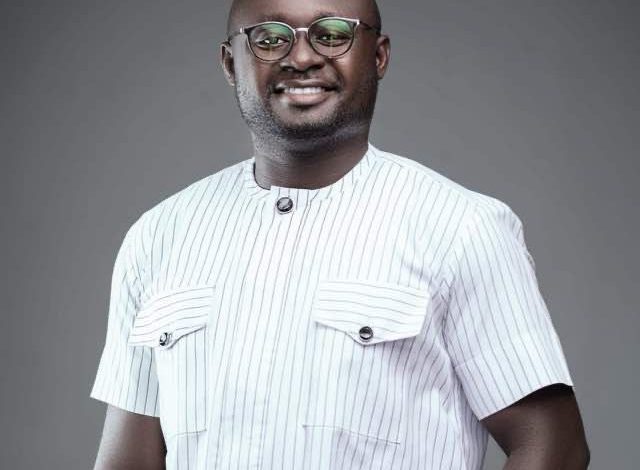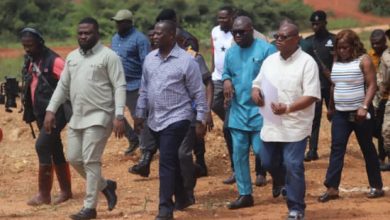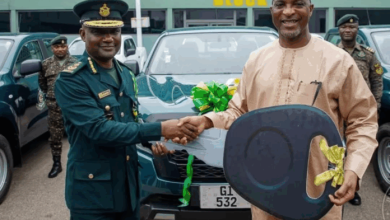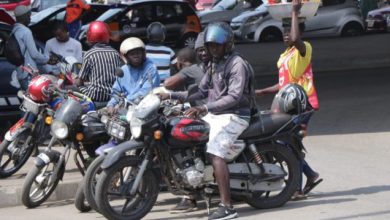System (Electoral Vehicle) Perspective To Elections In Ghana Under the 4th Republic And Lessons The NPP Must Guard Against

Dr. Keskine Owusu Poku
System (Electoral Vehicle) Perspective To Elections In Ghana Under the 4th Republic And Lessons The NPP Must Guard Against.
Background:
I have followed the debate over maintaining or changing a candidate with keen interest.
While many try to dip into history to ground their arguments, albeit cherry picking, the arguments fail to diagnose convincingly why NPP lost or won elections in different years.
The individualistic perspective (Flag bearers) fails to bring to bear the broader political settlements (within and without) of the parties which served as the vehicle for contesting power.
That is not just a fundamental flaw in all the arguments, but it also presents a very narrow perspective that obscures the real reasons why the parties failed or were successful in their contest for power.
Another reason could be the Socio-politico-economic issues of the time but in this piece, I look at one layer of the systems which is the health of the party vehicles the winning and losing parties used.
Hsitory:
First, in 1992, the party vehicle of the NPP for wrestling power was weak comparatively to that of the NDC.
The 11 years old military junta which had metamorphosed to a civilian regime was well coordinated with a broad based support networked across the country.
It had the weapon of fear and abuse at its disposal, and was practically micromanaging the elections. This is something, that admittedly, the NPP aspired for but the NDC had.
There is no empirical evidence that maintaining Prof Adu Boahen would not have been more electorally productive than going for the new flag bearer of 1996, HE John Agyekum Kufour and vice versa.
Neither can one convincingly claim that Kufour had better ideas than Prof Boahen and vice versa.
But what is clear from history is that the NPP was more grounded, more visible and united in purpose ahead of 1996 than it was in 1992.
The benefit of staying out of Parliament and remaining vociferous had paid off to augment the campaign of the new leader.
Dynamics:
The party had become attractive and visible. In fact, the hunger for power and the public engagements had gotten NPP rivaling the networks of NDC in almost every community in Ghana.
This was even better in 2000. However, the victory of 2000 is partly credited to the weakening of the NDCs vehicle due to the fragmentation and in-fightings deriving from the selection of their leader, Late JEA Mills. The NPP was the ultimate beneficiary.
This was to reverse and repeat itself in 2008. The Kufour administration had performed remarkably but the NPP vehicle had developed serious cracks from the flag bearership race of 2007.
The NDC, on the other hand, showed a higher sense of unity, drive and purpose and, they won.
Details:
However, with the same candidate (Nana Addo) but a stronger vehicle and more coordinated purpose in 2016, the NPP successfully won back power.
Arguably, the NDC did not have fragmentations in 2016 as John Mahama was seeking re-election as a sitting president but the bigger layer of the system (political economy) was badly against them due to the extreme levels of corruption, mismanagement and incompetence.
The unity in NPP helped in marshalling a more productive campaign on these issues.
The election of 2024 was to replay history as cracks in NPP resurged during the presidential primaries. The NDC presented a more united appeal and drive for power.
Pointers:
1. Historically, from 1979 to date, it is only the party that shows a united front that wins power.
The party vehicle is thus more important than who leads, even though the person who leads adds up to the leadership effects in managing the whole machinery by way of vision and ideas.
But where candidates were repeated or changed, the only variable that proved more deterministic of success in any elections was the sense of unity of purpose of the winning party ahead of the elections.
Even when Mahama clearly had no vision and presented the worst manifesto, NDC won in 2024 because they were united in purpose.
A united opposition party always stand a better chance in an election (food for thought).
2. Most fragmentations in political parties derive from the selection of a flag bearer and the unguided egos at play during the presidential primaries.
The cracks are often deeper at the base as people seek to use the secondary reason of flag bearership contest to settle primary disagreements that predated the contest such as the lack of access to the previous presidential candidate, fear of exclusion and not getting acknowledged, positioning for regime spoils, etc.
Admonition:
You may successfully get your candidate to lead the party but NOT the country if you don’t manage disagreements well DURING the primaries.
Focus on your message and candidate, and less on another candidate (food for thought).
Conclusion:
In conclusion, pursuing a strong, united and coordinated vehicle is thus a ‘sine qua non’ for electoral success in Ghana’s 4th republican adventure.
Hence, all mechanisms at ensuring a united party must be treated by any well meaning party person as the fierce urgency of NOW.
In fact, without unity after the primaries, NO CANDIDATE can win an election.
The party vehicle has proven time and again to be more powerful and useful than the effect any individual wields (food for thought).
Let’s guard it.
Article By Dr. Keskine Owusu Poku




